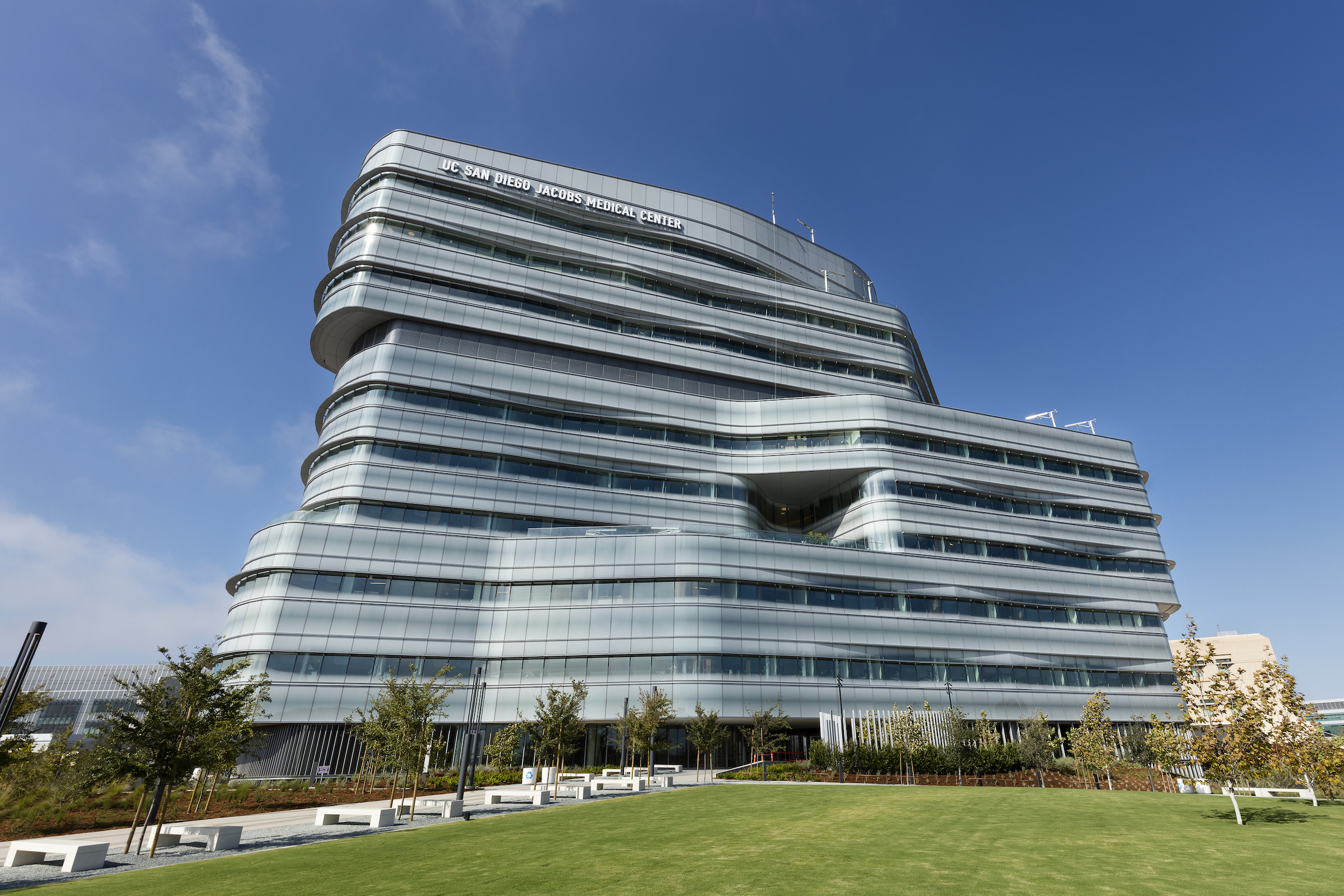Daily Business Report-June 13, 2017
‘I want to elevate the authentic presentation of American Indians in the mass media’ — Dr. Joely Proudfit. (Credit: Cal State San Marcos)
Dr. Joely Proudfit:
Advocating for American Indians
By David Ogul | Cal State San Marcos NewsCenter
Dr. Joely Proudfit minces no words in describing her mission advocating for American Indians.
“My American Indian culture and identity is central to my being, work and research,” said Proudfit, chair and professor in the American Indian Studies Department and Director of the California Indian Culture & Sovereignty Center at Cal State San Marcos.
Proudfit is a descendant of the Pechanga band of Luiseño Indians and was drawn to CSUSM because it is the traditional homeland of the Payómkowishum. She is among the nation’s leading champions of Native American education and was appointed by former President Barack Obama to the National Advisory Council on Indian Education.
“We must bring American Indians out of the history books and stereotypical media portrayals and into the contemporary context,” she said. “I want to elevate the authentic presentation of American Indians in the mass media.”
Proudfit is the co-president and co-founder of The Native Networkers, which consults with the entertainment industries in fostering authentic representation of Native Americans. She and her partner, film director Chris Eyre, recently worked with director Scott Cooper and actor Christian Bale on the upcoming film “Hostiles.”
Proudfit is especially proud of CSUSM’s role.
“We are home to numerous one-of-a-kind events, programs and publications such as California’s American Indian & Indigenous Film Festival, the State of American Indian & Alaska Native Education in California Report, and the annual Tribal Education Summit, to name just a few things that separate CSUSM from the rest,” she said.
“We are the leaders in the area because President Karen Haynes has chosen to implement a tribal initiative driven by the tribal peoples and nations of the region.”
_____________________

How Not to Build a Ship: The USS Gerald R. Ford
General Atomics’ Electromagnetic Launch System Criticized
San Diego Union-Tribune
The Navy’s next-generation aircraft carrier, USS Gerald R. Ford, is a monument to the Navy’s and defense industry’s ability to justify spending millions on unproven technologies that often deliver worse performance at a higher cost. The Ford program also provides yet another example of the dangers of the Navy and industry end-running the rigorous combat testing that is essential to ensuring we go to war with equipment that works.
The Navy had expected to have the ship delivered in 2014 at a cost of $10.5 billion. Instead, because the Navy tried to develop more than a dozen new and risky technologies at the same time it was building the ship, the schedule has slipped by more than three years.
_____________________
General Atomics Awarded Contract for
USS Gerald R. Ford and 2 Other Aircraft Carriers
General Atomics announced Monday that it has been awarded the sole source provider of both the Advanced Arresting Gear (AAG) and the Electromagnetic Aircraft Launch System (EMALS) for the first three Ford-class aircaft carriers — the USS Gerald R. Ford, USS John F. Kennedy and the USS Enterprise.
“This is a significant step toward ensuring all the materials and support associated with EMALS and AAG are readily available to launch and recover aircraft from Ford-class carriers for decades to come,” said Scott Forney, president of GA Electromagnetic Systems.
The Advanced Arresting Gear has been installed and is undergoing testing on the USS Gerald R. Ford, according to Rolf Ziesing, vice president of programs at General Atomics. “We are extremely proud to be part of a program that is delivering first-of-a-kind aircraft launch and recovery technologies to the first three, most advanced carriers scheduled to join the fleet in the past 40 years,” said Ziesing.
_____________________
Council Again Rejects Special Election
on Convention Center Expansion
The City Council on Monday voted down a plan to hold a special election in November, likely postponing Mayor Kevin Faulconer’s ballot initiative to expand the convention center by a year.
The action, on a 5-4 vote, will likely also push a ballot measure on redeveloping the Qualcomm Stadium property to next year.
The council had previously rejected funding for the election, but Faulconer used his veto power to restore the money. Then on Monday the council voted against holding an election, regardless of funding.
“There is nothing more democratic and fair than holding an election so voters can make their voices heard. But the City Council majority has made the irresponsible and politically-driven decision to deny a public vote,” said Faulconer. “Councilmembers who say they share the community’s priorities were given a chance to act, but they chose to do nothing.”
The ballot measure called for raising the tax on hotel guests to fund expansion of the convention center and provide money for road repairs and services to the homeless.
Mike McDowell, president and CEO of the San Diego Lodging Industry Association, said council members voting against the election “turned their backs on 184,000 San Diegans employed by the tourism industry, and 5,000 men, women and children living on our streets.”
City Council President Myrtle Cole committed that the council would discuss the tourism measure again in the fall.
At issue was the $5 million cost of the election at a time when funding was cut for other city programs. Opposition also came from backers of a voter-passed City Charter amendment that directs initiatives to general election ballots, and from organized labor.
_____________________
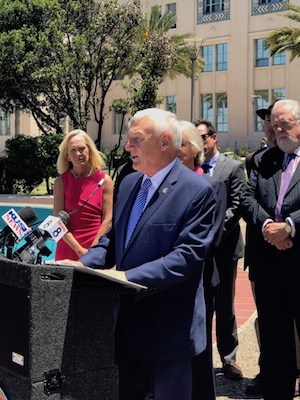
County Supervisors Seek $25 Million
to Address Affordable Housing Crisis
San Diego County Supervisor Ron Roberts and Chairwoman Dianne Jacob unveiled three initiatives Monday aimed at spurring the building, renovation and acquisition of affordable housing and stem the growing tide of homelessness.
The combined initiatives – establishing a $25 million affordable housing investment pool, transferring a half million dollars from Supervisor Roberts’ Neighborhood Reinvestment account to the county’s Health and Human Services agency to underwrite affordable pre-development and planning activities, and identifying 11 county-owned properties for residential development – represent an ambitious effort to boost the stock of affordable housing.
“Clearly, what we are doing now is not keeping up with the numbers of San Diegans who are being shut out of the housing market and either pushed into homelessness or unable to climb out with existing resources,” said Roberts, who also is chairman of the recently reorganized Regional Task Force on The Homeless. “I’m looking to jump start investment and creativity, while also encouraging elected officials in other areas of the county to look for government resources that can be used for affordable housing.”
Chairwoman Jacob said the $25 million in unallocated reserves provides a one-time investment to address affordable housing issues countywide, from El Cajon to Oceanside and Carlsbad to Ramona, with the county’s private or nonprofit sector partners owning and operating the units.
“These funds will allow us to team up with affordable housing developers to provide a hand up to those in need, not a hand out,” said Jacob. “The initiatives represent a huge investment in San Diego’s future — and for many of those who are struggling, they will help make the American Dream come true.”
San Diego is facing an affordable housing crisis, and one of its symptoms is an expanding population of homeless, including families and seniors. Social service providers and government agencies annually help thousands of people get off the street and improve their lives, but it is falling short.
This year’s annual Point In Time Count survey of homeless revealed that the number of homeless individuals in our region from a year earlier has increased 5 percent to 9,116. At the same time, the number of unsheltered homeless seniors, those 55 and older, rose to 1,598, a 20 percent increase.
_____________________
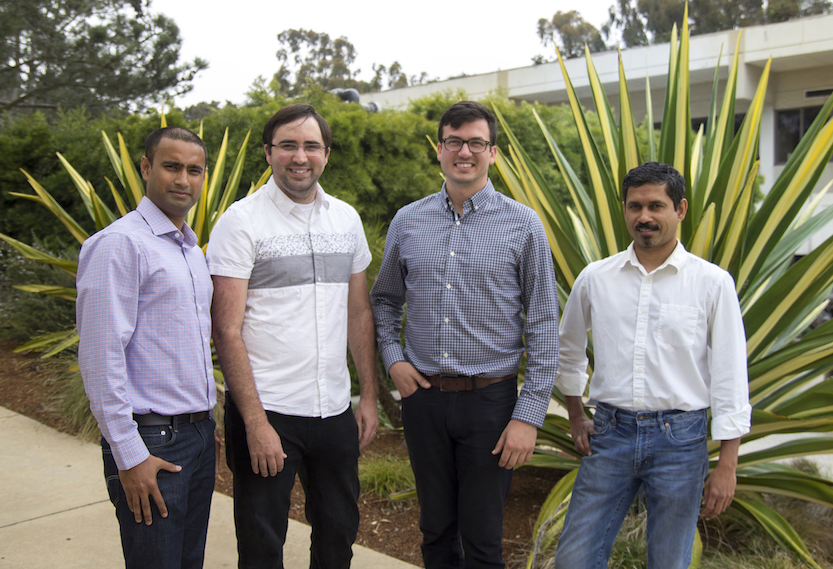
Scientists Solve a Cellular Mystery
With Implications for Diseases Like ALS
Scientists at The Scripps Research Institute have solved a cellular mystery that may have important implications for fundamental biology and diseases like ALS. Their new research suggests that RNA may be the secret ingredient that helps cells to assemble, organize internal architecture, and ultimately dissolve dynamic droplet-like compartments.
These droplet-like structures are commonly known as membraneless organelles, and they are key to how cells compartmentalize their biochemistry and regulate processes such as gene expression and response to stress.
_____________________
Preuss School Teacher Anne Artz
Receives Fulbright Teachers Award
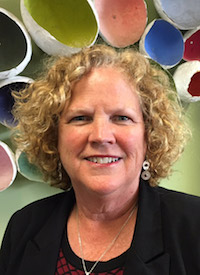
Anne Artz, a teacher at The Preuss School at UC San Diego, was one of nine U.S. citizens selected to participate in the prestigious Fulbright Distinguished Teaching Awards program. She’ll head to Vietnam this summer for a six-week teaching stint as part of the program.
During her time in Vietnam, Artz will work at Lao Cai Teacher Training College, the only college in the mountainous Lao Cai province responsible for training and re-training teachers. Artz will be working with current teachers and teachers-in-training to build their capacity to teach science, mathematics and information technology in English.
“I’m looking forward to exploring how other countries teach STEM,” said the science educator, who has taught at Preuss – a charter middle and high school on the UC San Diego campus – since 2005. Artz teaches advanced biology, environmental science and marine science at the school, in addition to serving as STEAM coordinator.
_____________________
Cubic to Present Advanced Air Combat
Training Systems at Paris Air Show
Cubic Global Defense, a business division of Cubic Corp., said it will highlight advanced air combat training systems that bridge the gap between current training and next-generation training at the International Paris Air Show from June 19–25 at the Le Bourget Airport. The International Paris Air Show is the largest and longest-running aerospace trade show in the world, bringing together key players in the industry for a weeklong event consisting of the latest technological innovations, product demonstrations and commercial opportunities.
A Cubic spokesman said the company has been the market leader in air combat training systems for the United States and its allies for more than four decades.
_____________________
Humane Society Offering Free Pet
Microchipping Before July 4 Holiday
The San Diego Humane Society is offering free microchipping on select days for all animals in anticipation of the 4th of July holiday – when shelters typically see a substantial increase in lost pets. July 4 is a festive day of celebration for people, but it can be a terrifying time for pets due to the loud noises associated with fireworks and revelry. Also, pets spooked by the noise of fireworks, have been known to jump fences out of fear and confusion resulting in a higher number of stray animals entering the shelter post July 4 celebrations.
San Diego Humane Society is offering free microchipping at the following times and locations:
• SDHS San Diego Campus- 5500 Gaines St.
Every Saturday in June from 9-11 a.m.
• SDHS Escondido Campus: 3450 E. Valley Parkway
Every Sunday in June from 1-3 p.m.
• SDHS Oceanside Campus: 572 Airport Road & 2905 San Luis Rey Road
Every Wednesday in June from 10 a.m.- Noon
This offer will also be extended at all campus locations on Friday, June 30, from 11 a.m. – 5 p.m. No appointment necessary.
_____________________
Personnel Announcements
Michael Genseal Named Director at TechFlow Inc.
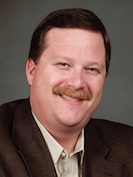
Michael D. Genseal has been named senior director at TechFlow Inc. in San Diego, responsible for the company’s Energy Solutions business unit.
Genseal will bring together a broad range of business activities and capabilities across the organization. His leadership will position TechFlow Energy Solutions to shape–what he has coined the “energy effectiveness” marketplace.
For more than 35 years, Genseal has positively impacted the energy, environmental, and financial performance of some of the world’s most successful companies and the U.S. government by leading the creation, development, and implementation of innovative energy effectiveness practices and projects.
Prior to joining TechFlow, Genseal served as vice president and managing director at Archetype USA, where he provided leadership oversight as prime contractor for the Army’s Office of Energy Initiatives and the Air Force Office of Energy Assurance. His past positions also include executive director at Concurrent Technologies Corporation, vice president at Science Applications International Corporation, senior vice president at Pace Global Energy Services, director of energy management at Chevron’s energy solutions business unit, and national manager of electrical engineering at Pacific Gas and Electric’s deregulated business unit, PG&E Energy Services.




